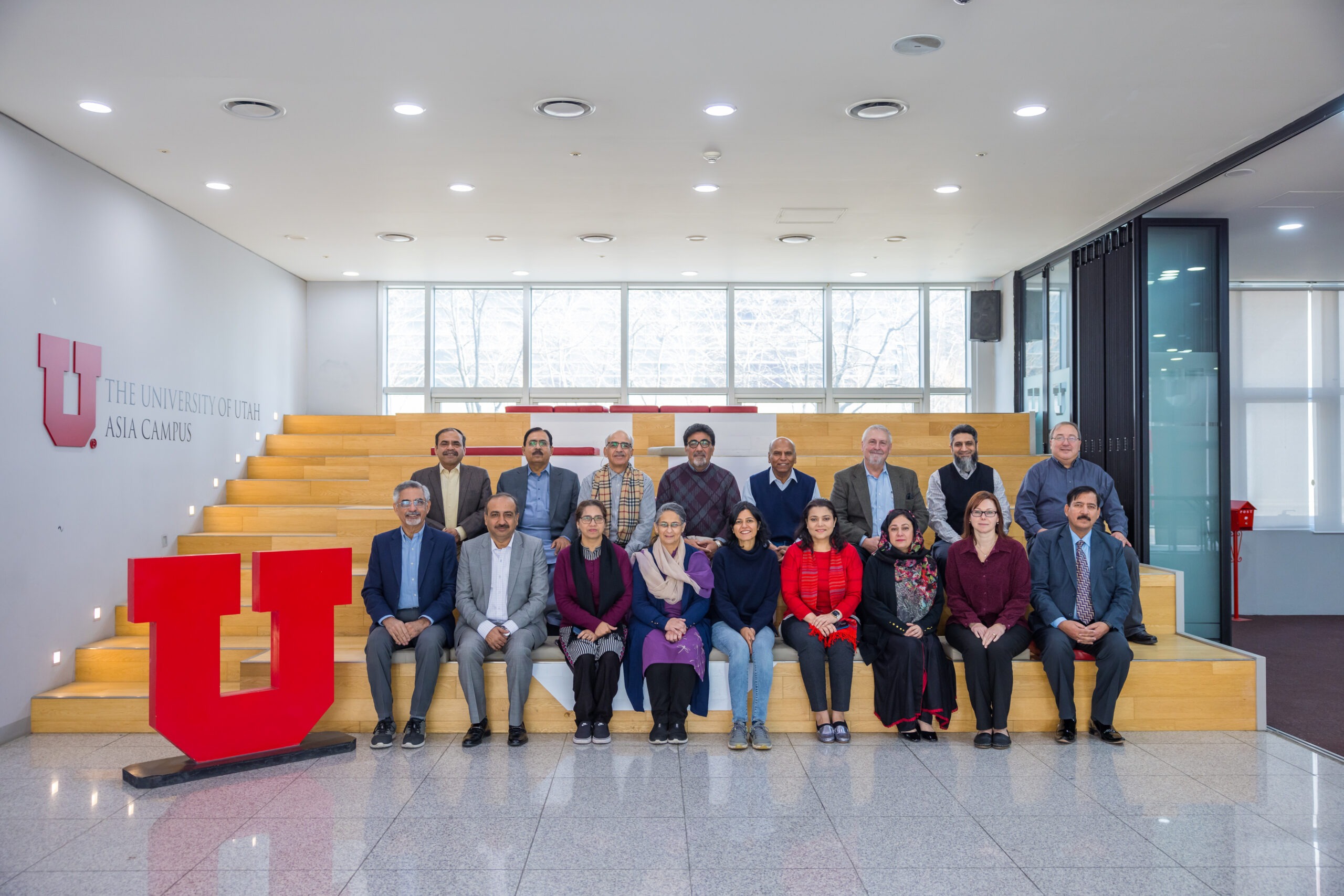From March 13-17, 2023, USAID’s Higher Education System Strengthening Activity (HESSA) hosted a study tour for eleven Vice Chancellors (VCs) of partner Pakistani public sector universities to the University of Utah’s Asia Campus in Incheon, Republic of Korea. The visit aimed to impart a better understanding of high-impact practices in academics, governance, and research which have made the Korean higher education system highly competitive, and market-driven.
The Pakistani higher education leaders participated in a guided tour of the International Global Campus (IGC) in Incheon, Korea, which hosts four U.S. and European universities. The cohort met with IGC management and university senior officials to learn how the international universities are working together under one umbrella to enhance the effectiveness of the education system and nurture the next generation of global leaders. The VCs also met the President of Incheon National University to explore linkages in higher learning and student exchange programs.
The delegation of VCs and Rectors, and officials from USAID and the University of Utah also visited the Incheon Startup Park—Korea’s first silicon-valley-style technology space. The Park houses over 30 tech startups and participants observed how these spaces have evolved globally over the years, and what their plans for future growth look like.
Stated one of the participating Vice Chancellors, “The environment in Incheon aligned with the concept of modern universities and emerging trends in higher education. Our exposure to Incheon Global Campus, Incheon National University, advanced technology, and massive infrastructure reflected the Korean government’s investment and commitment to higher education. The way the Korean system works was an eye-opener, especially their quota system and zero comprise on quality.”
An important feature of this international visit was a three-day co-creation workshop focusing on the development of university-specific strategic and business plans. Leadership training for academic governance and development of business plans is not yet institutionalized in Pakistan. Similarly, the majority of higher education institutions do not own a business plan, even though strategic planning is crucial for sustaining university operations. The workshop covered three modules including 1) laying the groundwork for strategic planning, 2) developing and implementing a strategic plan, and 3) sustaining an integrated planning culture.
“We enjoyed ample opportunities to connect with not only the Pakistani participants, but other academics during the visit as well. There was a lot to learn from the 16 participants from Pakistan and the group gelled together quite well. Moreover, the trainers for the Strategic Planning workshop mingled with us and we got to discuss our specific issues with them in a very informal manner.”

